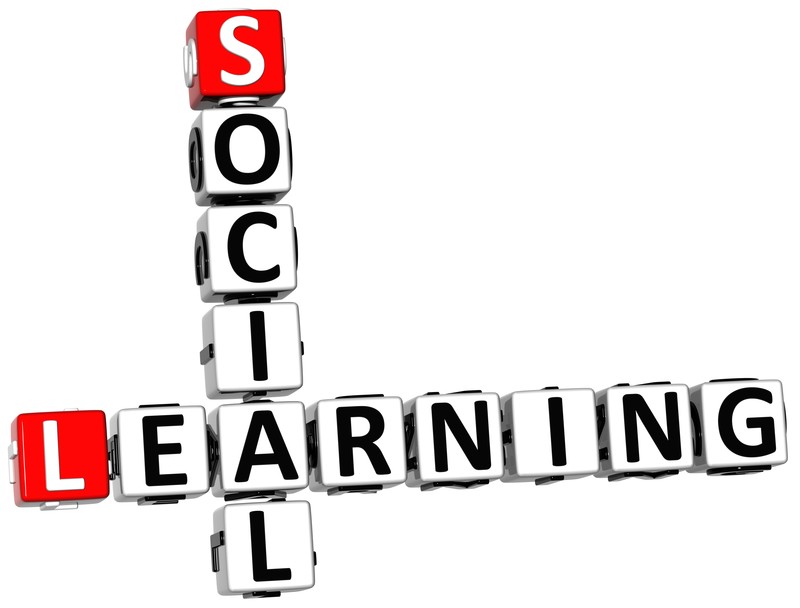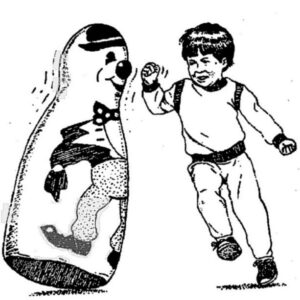The theory of Social Learning teaches us how we learn from others. It is a powerful theory that has been applied to many different fields, including education and psychology. In this blog post, we will explore the concepts behind social learning theory as well as some examples in practice.
Contents
What Is Social Learning Theory?
Social learning theory is the idea that we learn from others. It was first proposed by Albert Bandura in the 1960s. He believed that people learn through observation, imitation, and modeling. We can learn new behaviors by watching other people perform them or by hearing about them.
Main Concepts
The three main concepts behind social learning theory are imitation, modeling, and reinforcement.
- Imitation is when we copy the actions of others.
- Modeling is when we watch and learn from others.
- Reinforcement is when we are rewarded for exhibiting the desired behavior.
- All three of these concepts are essential to the theory of social learning.
Bobo Doll Experiment
- Bandura conducted a famous study on social learning theory called the Bobo Doll experiment. In the study, Bandura showed children several different videos of adults striking a Bobo doll (a clown punching bag).
- One group of children saw an adult attacking a toy. Another group only heard the sound of people hitting it. The results were surprising: Children who watched other people attack a Bobo doll were more likely to imitate their actions than those who just listened to it happen.
- This means that seeing something is sometimes better for learning than hearing or reading about it.
Result
Bandura’s theory formed many important concepts in psychology and education. We learn from other people just as much as we do from teachers or parents. Since social media has become so popular, researchers have applied social learning theory to the ways that we interact with others online.
Domains Of Social Learning Theory
Social learning theory is a broad perspective on human behavior, and it has been applied to many different fields.
Theorists often focus on three particular domains when they apply social learning concepts:
- Interaction: People learn from others in the context of their everyday lives, and this includes face-to-face interactions with friends and family members as well as online communication.
- Influence: People are constantly influenced by the people around them, and this includes both positive and negative influences.
- Learning: Humans learn in a variety of ways, including through observation, imitation, and modeling. We learn not just from other people but also from our environment.
- Social learning theory is a broad perspective on human behavior.
- “Theorists often focus on three particular domains when they apply social learning concepts: social interaction, social influence, and social learning.”
- “People learn from others in the context of their everyday lives, and this includes face-face interactions with friends and family members as well as online communication.”
- “People are constantly influenced by the people around them, and this includes both positive and negative influences.”
- “Humans learn in a variety of ways, including through observation, imitation, and modeling. We learn not just from other people but also from our environment.”
Social Learning Theory in Education
- Educators are always looking for new and effective teaching strategies, especially when it comes to early childhood education.
- Social learning theory is an excellent way of encouraging children to become successful learners through imitation and modeling—essentially, they learn by watching their teachers.
- For example, many schools use “praise around peers” as a strategy for promoting positive behaviors among students.
- When students do something right, like answer a question or behave well on the playground, teachers will often show their classmates by telling them what the student did.
- This helps young kids develop better study habits while also encouraging healthy competition between peers (the “positive” kind!).
Social Learning Theory in Psychology
- The theory has also been applied to the field of psychology. Many therapies and treatment programs use imitation and modeling as a way to help people learn new behaviors.
- For example, Alcoholics Anonymous (AA) is a 12-step program that uses social learning theory to help addicts recover from their addiction.
- The program encourages participants to imitate the behavior of healthy, sober individuals in order to learn how to live without alcohol.
- In addition, many mental health professionals use cognitive behavioral therapy (CBT), which is based on social learning theory.
- CBT helps patients identify and change harmful thoughts and behaviors by teaching them how to observe and model healthy coping skills from others.
Criticism
The criticism on social learning theory are:
- Some criticize the Bobo Doll experiment for its use of violence. The study showed children videos of adults physically attacking a toy, and some argue that this is not an appropriate way to learn.
- Some people think the experiment was not ethical. They think that a control group should have been included, which is a group of children who did not see or hear violent videos.
- Despite these criticisms, social learning theory remains an important concept in psychology and education. It has been used to develop many successful treatment programs and teaching strategies.
Impact On Social Media
There is a huge impact on social media due to social learning theory:
- Today, researchers are using social learning theory to explain how people learn from each other on the Internet.
- For example, in 2010 a group of psychologists conducted an experiment about self-disclosure online (sharing information about yourself).
- People who tell their friends on Facebook more personal things, like what they had for dinner or what they did, tend to get more of these types of messages from their friends. This shows how we model our behavior after others’ comments and actions in cyberspace.
- This is just one way that researchers apply social learning principles to digital communication.
- Social media makes it possible to share your ideas with a lot of people who think the same as you. This is good and bad. Sometimes, people will do things they never would have done without social media. Social learning theory is here to stay..
Conclusion
This theory is the idea that people can learn behavior by observing and imitating others. It’s what kids do when they learn to walk, or how many of us pick up bad habits). The same thing applies to marketing. Social media is a great way to find out what people like. You can see what other people are doing and try it too.; Just remember that imitation is the sincerest form of flattery, so be sure to give credit where credit is due.
If you are looking for affordable Online Counseling MantraCare can help: Book a trial therapy session






